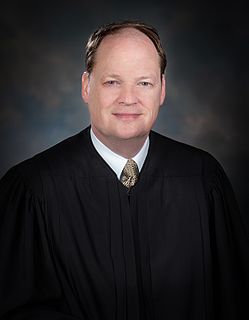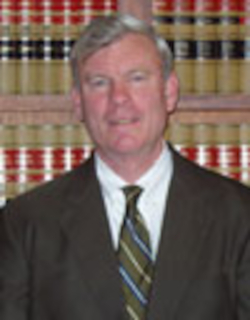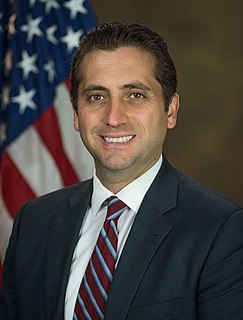Related Research Articles

The United States District Court for the Southern District of New York is a federal trial court whose geographic jurisdiction encompasses eight counties of New York State. Two of these are in New York City:New York (Manhattan) and Bronx;six are in Downstate:Westchester,Putnam,Rockland,Orange,Dutchess,and Sullivan. Appeals from the Southern District of New York are taken to the United States Court of Appeals for the Second Circuit.
The appointment of federal judges for United States federal courts is done via nomination by the President of the United States and confirmation by the United States Senate. The tables below provide the composition of all Article III courts which include the Supreme Court and the Courts of Appeals at the end of each four year presidential term,as well as the current compositions of the District Courts and the Court of International Trade,categorizing the judges by the presidential term during which they were first appointed to their seats.

Edward Charles Prado is an American diplomat who is a former United States Ambassador to Argentina from 2018 to 2021. He is a former United States Circuit Judge of the United States Court of Appeals for the Fifth Circuit.

Steven Michael Colloton is a United States Circuit Judge of the United States Court of Appeals for the Eighth Circuit since 2003.

Terrence William Boyle is a United States District Judge of the United States District Court for the Eastern District of North Carolina. He was Chief Judge of that court from 1997 to 2004. He served a second term as Chief Judge from 2018 to 2021. From 1991 to 1993 and again from 2001 to 2007,he was a nominee to the United States Court of Appeals for the Fourth Circuit. His federal appellate nomination from 2001 to 2007 is the longest in history not to be acted upon by the United States Senate.
Fred I. Parker was a United States Circuit Judge of the United States Court of Appeals for the Second Circuit and a United States District Judge of the United States District Court for the District of Vermont.
Debra Ann Livingston is the Chief United States Circuit Judge of the United States Court of Appeals for the Second Circuit.
J. Rich Leonard is the dean of the Norman Adrian Wiggins School of Law since July 2013. He previously served as a U.S. bankruptcy judge for the Eastern District of North Carolina and was chief judge from 1998 until 2005. Judge Leonard was also a former federal judicial nominee to the U.S. Court of Appeals for the Fourth Circuit and to the U.S. District Court for the Eastern District of North Carolina.
George Benjamin Daniels is a Senior United States District Judge of the United States District Court for the Southern District of New York.
During President Bill Clinton's first and second terms of office,he nominated 24 people for 20 federal appellate judgeships but the nominees were not processed by the Republican-controlled Senate Judiciary Committee. Three of the nominees who were not processed were nominated after July 1,2000,the traditional start date of the unofficial Thurmond Rule during a presidential election year. Democrats claim that Senate Republicans of the 106th Congress purposely tried to keep open particular judgeships as a political maneuver to allow a future Republican president to fill them. Of the 20 seats in question,four were eventually filled with different Clinton nominees,fourteen were later filled with Republican nominees by President George W. Bush and two continued to stay open during Bush's presidency. Senator Harry Reid,the Democratic leader of the United States Senate during the 110th Congress,and Senator Patrick Leahy,the Democratic leader of the Senate Judiciary Committee under Reid,repeatedly mentioned the controversy over President Clinton's court of appeals nominees during the controversy involving the confirmation of Republican court of appeals nominees during the last two years of Bush's second term. Republicans claimed that Democrats were refusing to confirm certain longstanding Bush nominees in order to allow a future Democratic president in 2009 to fill those judgeships.
During President Jimmy Carter's presidency,he nominated four people for four different federal appellate judgeships who were not processed by the Democratic-controlled Senate Judiciary Committee before Carter's presidency ended. None of the four nominees were renominated by Carter's successor,President Ronald Reagan. Three of the nominees who were not processed were nominated after July 1,1980,the traditional start date of the unofficial Thurmond Rule during a presidential election year. All four seats eventually were filled by appointees of President Ronald Reagan.

Karin Johanna Immergut is an American lawyer and jurist serving as a United States district judge of the United States District Court for the District of Oregon.
James Arthur Beaty Jr. is a former United States District Judge of the United States District Court for the Middle District of North Carolina,and a former nominee to the United States Court of Appeals for the Fourth Circuit.
Paul Steven Diamond is a United States District Judge of the United States District Court for the Eastern District of Pennsylvania and a former federal judicial nominee to be a judge on the United States Court of Appeals for the Third Circuit. He was appointed a federal judge by George W. Bush in 2004.
Barrington Daniels Parker was a United States District Judge of the United States District Court for the District of Columbia.

Susan Laura Carney is a United States Circuit Judge of the United States Court of Appeals for the Second Circuit.

Richard Sheppard Arnold was a United States District Judge of the United States District Court for the Eastern District of Arkansas and the United States District Court for the Western District of Arkansas and then a United States Circuit Judge of the United States Court of Appeals for the Eighth Circuit.
Cory Todd Wilson is an American attorney,politician,and jurist serving as a United States Circuit Judge of the United States Court of Appeals for the Fifth Circuit. He is a former nominee to be a United States District Judge of the United States District Court for the Southern District of Mississippi and former Judge of the Mississippi Court of Appeals.

John Peter Cronan is a United States District Judge of the United States District Court for the Southern District of New York. He was formerly acting United States Assistant Attorney General for the United States Department of Justice Criminal Division.
References
- ↑ "Parker, Barrington Daniels, Jr". fjc.gov. Retrieved November 27, 2019.
- ↑ Neumeister, Larry (July 9, 2019). "President Trump Can't Block Critics on Twitter, Says Court". Time. Archived from the original on July 9, 2019. Retrieved July 9, 2019.